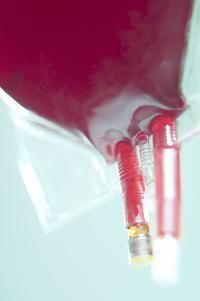Physiological passport to join biological equivalent?
How monitoring physiological data could boost antidoping

As cycling and other endurance sports continue to battle accusations and insinuations of doping and, at the same time, search for ways to guarantee greater public confidence in athletic feats, work is progressing on what is likely to be the next tool that can help with those quests: the development of a so-called performance or physiological passport, which could be used in conjunction with the now well-established biological passport to monitor athletic performance.
In a report in L’Equipe, FDJ performance director Fred Grappe says that what he describes as a “physiological passport would enable you to see what was going on the inside of an athlete’s body.” Grappe continues: “At the moment we can measure the quality of the petrol and say: that’s good. But it would be very useful to be able to evaluate the quality of the engine.”
Martial Saugy, head of the Swiss anti-doping laboratory and of the Institute of Sports Science at the University of Lausanne (ISSUL), whose research helped towards the establishment of the biological passport system that was first used by the UCI in 2008, tells L’Équipe that it has long been felt within the sports science community that the work done on the biological passport could be extended to include other parameters.
“Introducing supplementary parameters would tighten the mesh on the antidoping net a little more,” says Saugy. “’Physiological passport’ is perhaps not the best terms for it. I would rather talk about a passport based on individual monitoring of performance, performance being the result of an athlete’s physiological parameters.”
These parameters could be established using a power meter, which would establish power output, cadence, heart rate and speed when riders were both racing and training, enabling a long-term profile of individual performance to be established. “The question now is knowing whether there are parameters that would show evidence of abnormal deviations in performance,” explains Saugy.
James Hopker, a British researcher carrying out work on this issue at the University of Kent, believes that is possible. “A tool very similar to the biological passport could be put together and then you could combine the two: power data and haematological data,” says Hopker. “If this could be achieved it would also boost the capacity of the haematological passport in the antidoping fight.”
UCI boss Brian Cookson tells L’Équipe that he regards a performance passport as “a good idea if a system that is consistent, accurate and that can be applied to all teams and all riders can be developed. There are technical problems that need to be resolved, the choice of equipment used to make the assessments, of calibration. Wait and see,” says Cookson.
Get The Leadout Newsletter
The latest race content, interviews, features, reviews and expert buying guides, direct to your inbox!
Saugy shares Cookson’s ideas about establishing a system that is both reliable and seen to be so. He concludes: “From the haematological perspective, we’ve been using the same technology since 2009. It’s the same apparatus and requires only one form of calibration. The same thing would need to be in place for monitoring performance.”
There’s significant support for a development of this kind among pro teams and riders. Sky boss Dave Brailsford held a meeting with Cookson in March to discuss this and related issues. Cookson has said that he will set Brailsford’s suggestions before the UCI’s Professional Cycling Council in due course.
Asked for his thoughts on this possible development, FDJ leader Thibaut Pinot reveals: “I wouldn’t be upset by the introduction of a physiological passport. If that would provide a boost to the antidoping fight.”
Sky leader Chris Froome, who did release a significant amount of his physiological data following his victory at last year’s Tour de France, is also in favour. “My hope is that more transparency will be another step towards re-establishing confidence in the sport that I love,” says the Briton.

Thank you for reading 5 articles in the past 30 days*
Join now for unlimited access
Enjoy your first month for just £1 / $1 / €1
*Read any 5 articles for free in each 30-day period, this automatically resets
After your trial you will be billed £4.99 $7.99 €5.99 per month, cancel anytime. Or sign up for one year for just £49 $79 €59

Join now for unlimited access
Try your first month for just £1 / $1 / €1
Peter Cossins has written about professional cycling since 1993 and is a contributing editor to Procycling. He is the author of The Monuments: The Grit and the Glory of Cycling's Greatest One-Day Races (Bloomsbury, March 2014) and has translated Christophe Bassons' autobiography, A Clean Break (Bloomsbury, July 2014).
